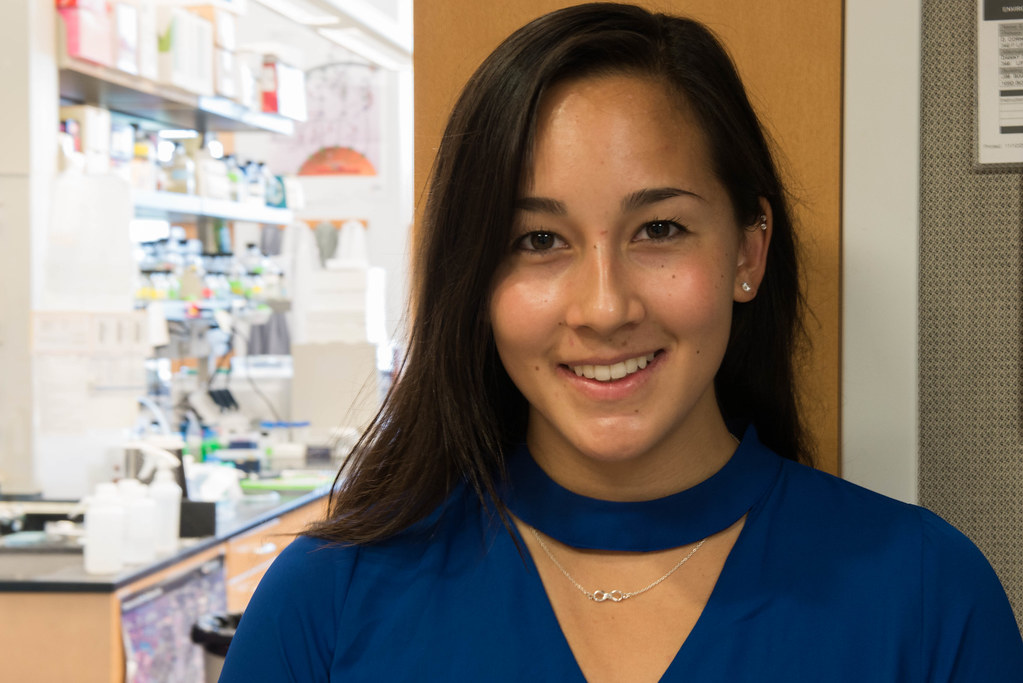
Sometimes the most learning occurs outside of the classroom.
For Jacqueline Ihnat, an opportunity to pursue research at the Bond Life Sciences Center this summer will give her that chance. She recently became one of 12 Cherng Summer Scholars, a full-time, ten-week program within the Honors College at MU.
“Doing research helps keep me focused on the bigger picture,” Ihnat said. “Sometimes in class we learn things that don’t seem entirely relevant or useful, but being part of a research lab allows me to apply some of the knowledge that I gain in the classroom. It’s a daily reminder of why I’m learning what I am.”
Jacqueline Ihnat’s passion for science started in high school. Her high school biology teacher ignited that love by teaching her how to struggle through difficult problems and concepts. Now, Ihnat is an MU pre-med student with a major in business management and a minor in Spanish.
Since Ihnat is fascinated with cells and how our bodies function, she’ll be studying the role of specialized stem cells in muscle regeneration and how they interact with muscle fibers — specifically the role of Eph-A3, a type of cell-surface receptor. This project will take place in the lab of Dawn Cornelison, a Bond LSC biologist who will be mentoring Ihnat this summer.

Each muscle in the body is unique in its length, fiber organization and fiber type patterning, so Ihnat hopes to explore why two types of muscle — fast and slow twitch muscle — develop and regenerate to maintain each specific muscle fiber-type composition.
When a muscle is damaged from exercise or injury, a muscle’s stem cells, or “satellite cells,” will multiply, move towards the injury and form new muscle, replacing the damaged fiber. There is no research that determines if “fast” satellite cells create fast fibers and if “slow” satellite cells create slow fibers, and Ihnat hopes to tackle that question this summer. This kind of research gives scientists a deeper understanding of degenerative muscle diseases such as ALS, which could lead to more effective treatments and therapies.
The Cherng Summer Scholars program is supported by a gift from Andrew and Peggy Cherng and the Panda Charitable Foundation. The Cherng’s are the founders of Panda Express, a well-known restaurant chain. These scholarships support individually designed theoretical research, applied research or artistry projects under the mentorship of an MU faculty member.
For young scientists who are just starting to conduct research and struggling to feel successful, Ihnat has a few words of motivation.
“My high school biology teacher always said that research is 30 years of frustration and disappointment followed by 30 seconds of elation when you finally make a breakthrough,” she said. “Patience is key.”

